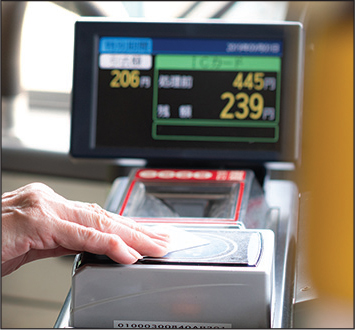
India is headed towards the modernisation of public transport. Transit operators are looking at smart ticketing and multimodal fare integration to make travel easier. They offer various benefits like flexible ticketing, seamless and integrated travel experience, improved services, contactless travel, immediacy, convenience and increased mobility. With the outbreak of the novel coronavirus, the demand for contactless travel has come to the fore. Many metro authorities are looking to switch to smart ticketing and multimodal fare integration as contactless payments are the need of the hour.
Smart ticketing
Until recently, opinions regarding the perks and efficiency of contactless payment solutions were divided. In the face of changing circumstances, the public transport sector is now looking to adopt smart ticketing solutions. The Delhi Metro Rail Corporation (DMRC), in association with SBI Card, launched the Delhi Metro-SBI Card, a multipurpose credit card for the benefit of Delhi Metro commuters. It will enable its users to use it as a smart card that has an auto top-up facility. Whenever the balance of the card goes below Rs 100, the credit card facility will automatically recharge a top-up value of Rs 200 to the card from the user’s linked card/ bank account. DMRC has also enabled top-up of its metro cards through online platforms like Amazon Pay and Paytm.
In October 2021, DMRC announced its plan to launch an upgraded contactless ticketing system under a new system called near-field communication (NFC). Under this system, smartphones act as metro smart cards and enable passengers to pay for their journeys through their debit and credit cards, NFC, QR code-based ticketing mobile phones and paper QR tickets apart from smart cards. At present, this facility is available only on the Airport Express Line in Delhi. In order to support NFC, the automatic fare collection gates installed at the station will also be updated.
Another city promoting cashless transactions and minimising contact between staff and passengers during Covid-19 is Kochi. Kochi Metro has enabled an electronic ticketing facility for its commuters. It is an open-loop National Common Mobility Card (NCMC) called Kochi-One, launched jointly by Kochi Metro Rail Limited and Axis Bank. With this new facility, passengers can use the Kochi-One mobile application of Kochi Metro and generate e-tickets with QR codes.
The State Bank of India, in collaboration with Maharashtra Metro Rail Corporation Limited, has launched a contactless co-branded prepaid card, MAHA Card, for travellers to facilitate tap-and-go payments at Nagpur metro stations. The card has a dual interface with stored value functionality for a secure, convenient and seamless payment process. Ahmedabad Metro also has its own NCMC for contactless and seamless travel. Lucknow Metro has a GoSmartcard, which can be used for a seamless journey on the Lucknow Metro and other integrated transport modes in the city.
Multimodal fare integration
Transit systems in India are also looking to adopt multimodal fare integration, wherein one smart card can be used across all public transport facilities in the city and intercity as well. The Kochi-One Card facility introduced in the Kochi Metro has been extended to about 150 private buses. The system will be extended to all buses including those operating under the Kerala State Road Transport Corporation. The live tracking of buses will be disseminated to the public through a mobile app-based journey planner.
The Delhi government has also launched a common mobility card, One, which enables city commuters to access metro and bus services with a single card at a 10 per cent discount. Going one step ahead, the Lucknow Metro GoSmart card can be used on other metros (once they are operational) in Uttar Pradesh like in Kanpur, Varanasi, Meerut, Agra and Prayagraj.
In a significant step towards implementing the integrated ticketing system in Mumbai, the Mumbai Metropolitan Region Development Authority (MMRDA) is working towards creating a common mobility platform for contactless and seamless travel across all modes. Under the system, the MMRDA plans to have a smart card for all modes of public transport in the city, including the suburban railways, BEST bus services, the monorail and the Mumbai Metro network. Pune is also working on incorporating a single integrated ticketing system for different modes of public transport once the metro network is launched.
Conclusion
The outbreak of the pandemic has had a profound effect on all activities related to human interaction. The public transport sector was the first to bear the brunt of the crisis caused by Covid-19. With social distancing becoming the norm, the concept of smart ticketing and multimodal fare integration is no longer a mere convenience but a necessity to ensure contactless and seamless travel and human-error-free transactions. Going forward, it is essential that all transport corporations adopt smart and integrated transit systems. App-based ticketing systems will outlast the outbreak and assist both transit agencies and passengers in different ways.
